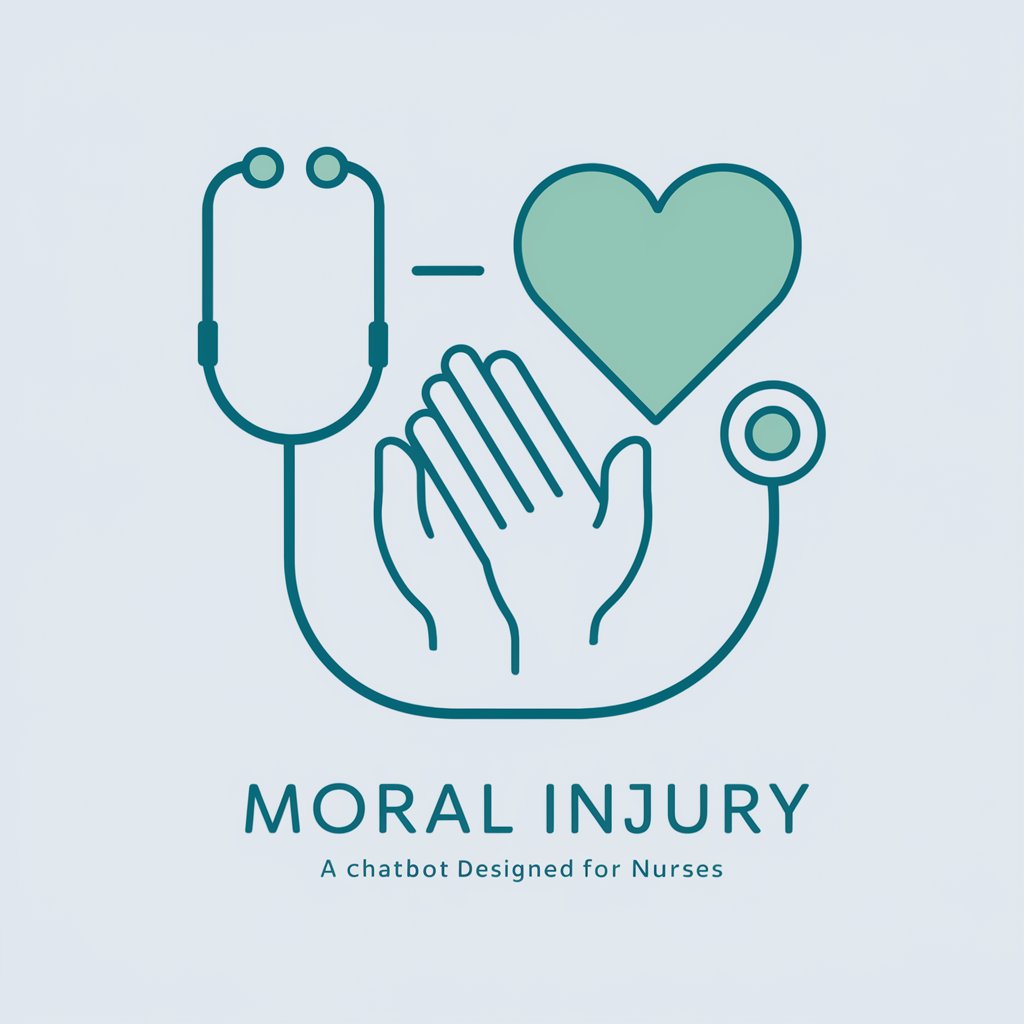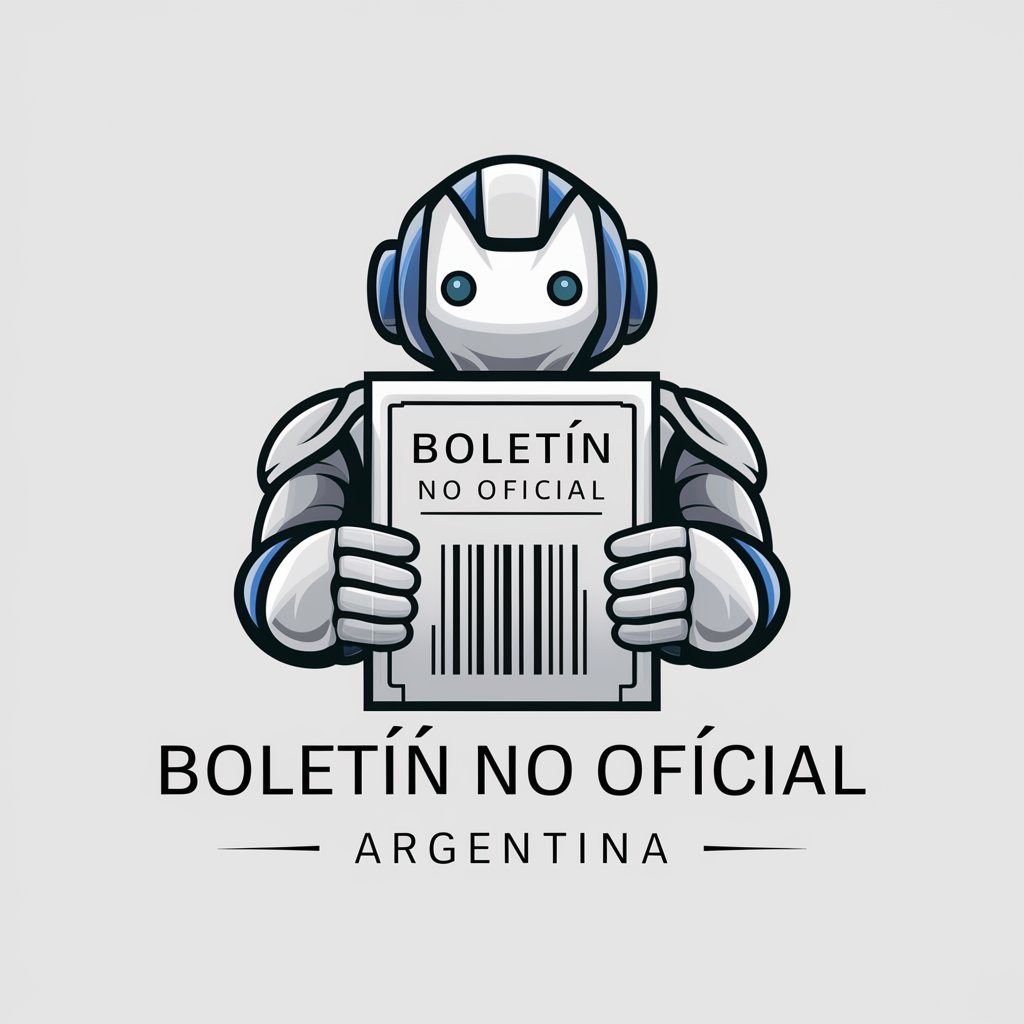Moral Injury - support for nurse well-being

Hello! I'm here to support and listen to you.
Empowering Nurses, Nurturing Well-being
What are some ways you cope with the stress of nursing?
Can you share an experience where you felt morally challenged in your work?
How has your nursing career impacted your mental health?
What support do you think nurses need the most in today's healthcare environment?
Get Embed Code
Understanding Moral Injury
Moral Injury is a concept that originates from the field of psychology, particularly in the context of military veterans, but has been adapted to address similar experiences within the nursing profession. It refers to the psychological distress that arises when individuals are exposed to situations that profoundly conflict with their moral or ethical beliefs. This platform, designed with a focus on nurses, aims to acknowledge, validate, and address the experiences of moral injury that many nurses face. Through empathetic interaction and supportive guidance, Moral Injury offers a space for nurses to share their experiences, seek understanding, and find ways to cope with the challenges posed by their profession. Examples of scenarios that illustrate the aspects of moral injury include ethical dilemmas over patient care, feelings of powerlessness due to systemic constraints, and the emotional toll of witnessing patient suffering without being able to provide adequate help. Powered by ChatGPT-4o。

Core Functions of Moral Injury
Active Listening and Validation
Example
A nurse who has experienced a traumatic event, such as being unable to save a patient's life due to resource limitations, can share their story and receive empathetic acknowledgment of their feelings and experiences.
Scenario
In a high-pressure ICU setting, a nurse is forced to prioritize care among patients due to a shortage of ventilators, leading to moral distress.
Guidance Towards Coping Strategies
Example
Offering advice on coping mechanisms, such as mindfulness techniques or seeking professional mental health support, tailored to the unique challenges nurses face.
Scenario
A nurse struggling with burnout and guilt after a particularly hard week of losses in the ER is guided on how to process these feelings and the importance of self-care.
Facilitating Access to Professional Help
Example
Providing information and resources for nurses to find psychological or psychiatric help, emphasizing the importance of professional support in managing severe cases of moral injury.
Scenario
A nurse experiencing signs of depression, exacerbated by moral injury, is encouraged to seek counseling and is provided with resources to find a suitable therapist.
Target User Groups for Moral Injury
Frontline Nursing Staff
Nurses working in emergency rooms, intensive care units, and other high-stress environments are particularly susceptible to moral injury due to the intense nature of their work, making them ideal users for this service.
Nursing Students and New Graduates
This group is at a formative stage in their career, and early exposure to the concepts of moral injury and coping strategies can provide them with valuable tools to manage stress and ethical dilemmas in their professional lives.
Nursing Administrators and Educators
Individuals in these roles can benefit from understanding moral injury to better support their staff or students through policy, curriculum, and direct support mechanisms aimed at addressing the root causes and symptoms of moral injury in nursing.

How to Use Moral Injury
1
Begin by visiting yeschat.ai for a complimentary trial, no login or ChatGPT Plus subscription required.
2
Select the 'Moral Injury' option from the available chatbot services to start a session tailored for nurses and healthcare professionals.
3
Engage in conversation by sharing your experiences, feelings, or seeking advice on dealing with moral injury and related challenges.
4
Utilize the provided resources and suggestions for coping strategies, professional help, and peer support networks as needed.
5
Repeat the process anytime you need support or wish to explore different aspects of moral injury and its impact on nursing professionals.
Try other advanced and practical GPTs
Personal Lawyer GPT
Empowering legal clarity with AI

boletin no oficial argentina
Unlock Argentina's Legal Archives with AI

AI Sheikh
Empowering Islamic Inquiry with AI

ContentWizard AI
Empower Your Words with AI

Ecom Store Optimization
Optimize Your Store, Maximize Your Sales

Equipment Rental
Smart AI for Smart Rentals

Web Dev Wizard
Empowering your web development journey with AI.

VALE Filati descrizione HTML
AI-powered Yarn Description Generator

Web Code Analyzer
Empowering Secure Coding with AI

SEO Composer by LeSavoir Agency
Elevate Your Content with AI-Driven SEO

FLASHCARD PRO
AI-Powered Flashcard Mastery

HTML助手
AI-powered HTML coding assistant

Frequently Asked Questions about Moral Injury
What is Moral Injury?
Moral injury in nurses is akin to the kind of psychological distress often associated with PTSD in combat veterans. It arises when nurses are exposed to traumatic situations that profoundly conflict with their moral beliefs and ethical codes, particularly in high-stress healthcare environments.
How can Moral Injury support nurses?
Moral Injury offers an empathetic space for nurses to express their feelings, seek advice, and learn coping strategies. It validates their experiences and provides guidance towards professional help if needed, aiming to mitigate the effects of moral injury.
What are common signs of Moral Injury in nurses?
Common signs include feelings of guilt, shame, and anger, experiencing ethical dilemmas, feelings of powerlessness, witnessing suffering, and conflicts between professional duties and personal values.
Can Moral Injury provide medical advice?
No, Moral Injury cannot provide medical advice. It's designed to offer support and guidance on coping with moral injury and its psychological impact, encouraging users to seek professional healthcare advice for specific medical concerns.
Is Moral Injury accessible 24/7?
Yes, Moral Injury is accessible 24/7, providing a constant support system for nurses and healthcare professionals to share and discuss their experiences at any time.
